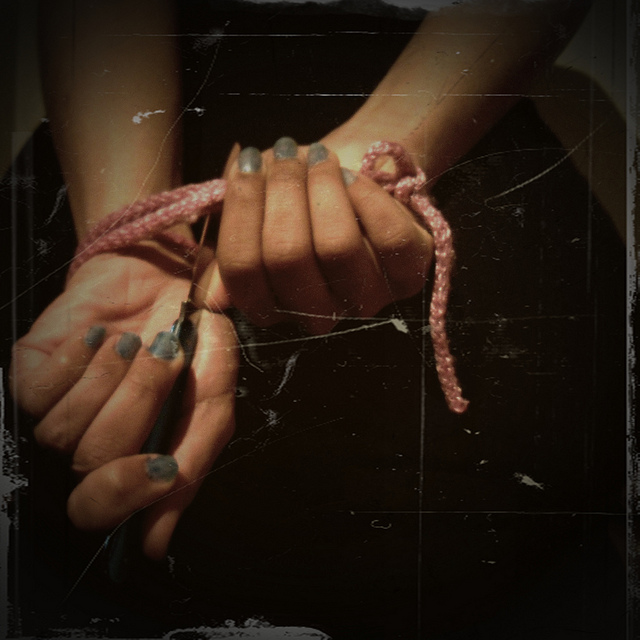When I say “I see you,” I do not mean “I see your story.”
I recently heard someone say, “To say ‘I see you is’ to say ‘I see your story’ and to recognize that I only can see you through my own eyes.”
No pun intended, that’s not how I see it.
Everyone’s got a story; I used to have one too. It’s colorfully laid out in my book, Imperfectly Sane, but to summarize my mother was a b*tch, my father an adulterer, my grandfather a rapist, my grandmother a weakling, and I—was on the receiving end of relentless abuse by a seriously f*cked up world.
All of that, and none of that, is true—which is why when I say, “I see you,” I don’t mean, “I see your story.”
I mean, “I see you beyond your story.”
Writing is the home I return to when I need to bleed, to feel it all—blood, bandages, tears, snot, and washrags. It’s the place I go to heal. After writing the story about my life, nowhere to turn, I reread it back to myself, said “F*ck this, I’m done dying,” and changed my whole f*cking life story from the inside out. Every last bit of it. I healed myself of things I was told I’d never heal from, left terribly f*cked up situations with no guarantee of anything better. I dared to face my own strength.
Most of our stories are focused in limitation. A black women once said to me, “If you don’t see the color of my skin when you look at me, you don’t see me.”
Her blackness, as far as I can see it, is only part of the story she tells herself and the world about who she is. That’s a story in limitation, but when I say, “I see you,” I see the limitless, divine, powerful you that surpasses the measly stories you write about your life.
I know limitations like the back of my hand, and for many years I came up against wall after wall after f*cking, sh*tty wall that reminded me of my limitations. When I got really honest, every wall I ever came up against was one I constructed with my own hands. It was a densified, unmet need that I believed would never be met, so I shut it down and turned it off. But it lingered in the form of anger and disconnection. Our walls are our limitations and they are usually a broken record of sad stories set on repeat.
We all build our own limitations. I don’t care what religion, race, sexuality, or creed we live by. Our limitations aren’t who we are, who the world says we’re allowed to be, or what we’re capable of, but in the broken records of stories we write about our lives that ultimately don’t serve us.
Our limitations are not in society’s glass ceiling, the color of our skin, the skinniness of our bones, our age, health, or anything else. Our limitations are within us.
I met a man named Rob who played professional football until he had a stroke. Forty years ago, this guy had a stroke and has been non-verbal and unable to wipe his own ass since. He has a computer to write with his eye movements so he can communicate his needs to the nurses. He demands an entirely organic diet. He’s fiercely embodied as a ginormous, teddy bear football player of a black guy who wrote on his machine as we left the room, “I’m the happiest I’ve ever been.”
I sobbed.
He wrote a book about his life from his machine and feels ultimate freedom in his belief that, despite his circumstances, he loves himself, and he is now free.
He’s not his story—he’s his present moment.
By the naked eye, this guy will never leave the room he lives in again. He is bound and has been for 40 years. His story, by definition, is defined and has a potentially boring ending, but he’s found himself in that quiet space, and that’s who he is. That’s who I see.
When someone has found themselves in there—in the space where they can hear themselves think—they understand that they are not their stories. They are the authors witnessing the telling of their story. When they realize this about themselves, it is all they can see in someone else.
I may hear and see your story, and will strive until the day I die to see as many perspectives of the kaleidoscope of life as possible. But even the kaleidoscope is just a projector screen for the witnesser.
What I see in you is not your story. What I see in you is the person underneath your skin, sex, experiences, pleasures, and pains; I see the being who is witnessing themselves experience all of the stories being authored.
I see you—beyond your story.
Beyond our story, in my opinion, is where we taste true empowerment.
As individuals and as a collective.
Relephant Read:
You Have the Power to Tell a Different Life Story.
~
~
~
Author: Stacy Koch
Image: Kiran Foster/Flickr
Editor: Danielle Beutell
Copy Editor: Taia Butler
Social Editor: Lieselle Davidson











Read 1 comment and reply